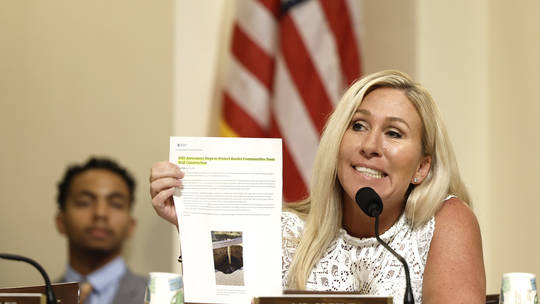THE GUARDIAN
• Suffer close to 50 per cent capital erosion in two months
• ‘Basel compliance could impose recapitalisation option’
• Financial institutions in desperate moves to hedge FX liabilities
• Competition for hard currency mobilisation intensifies
• FX savings could go into liquidating dollar-denominated liabilities
• Nigeria risks losing Africa’s biggest economy status
The falling naira has sent a shockwave across the market, throwing many bank chiefs off guard. Whereas the majority of the financial institutions hold foreign currency assets and liabilities, the latter outweighs the former for many in the group. In some cases, findings suggested, liabilities are twice the value of assets.
Added to the uneven distribution of assets and liabilities, the currency crisis has shrunk the books by close to 50 per cent this year alone, putting pressure on the capital adequacy levels of the sector.
Experts note that the banks could on their own be forced to embark on capital adequacy assessment, which could lead to fresh capital raising or the regulator comes up with a reality check exercise that could suggest additional capital sourcing. In either case, shareholders’ value could be diluted as the banks explore the least risky option to beef up their capital.
The Basel arrangement, a global standard of minimal capital and other requirements for banking service, could force the hand of the banks or the Central Bank of Nigeria (CBN), Abiodun Karipe, an Investment research analyst at Afrinvest Group,
The Guardian was informed that the continued depreciation has caused substantial panic with some banks currently scrambling for innovative and insane approaches to plug the widening holes in their books and hedge against the emerging currency risks.
Other local companies with substantial foreign currency liabilities in their books are also caught in the quagmire, sources close to affected organisations revealed.
Most companies affected, according to sources, are affiliates and subsidiaries who have had to feed on their overseas parent companies for critical funding needs.
With the post-floating official exchange rate going up by as much as over 60 per cent, the liabilities of the affected companies have ballooned by over 50 per cent in less than two months.
“The situation is worse for companies that earn in local currency,” a source told The Guardian at the weekend. The source added: “They earn in naira but have to pay or service their loans in dollars. It is easier if a company has strong assets in foreign currencies. Even if it has liquidity issues, with time it could get over it.”
For the banks, there is a renewed scramble for hard currency deposits with some marketers offering unrealistic incentives to depositors.
The Central Bank of Nigeria (CBN) only mandates banks to pay interest rates on savings deposits in local currency, which is pegged at the minimum of 30 per cent of the monetary policy rate (MPR). But The Guardian was informed that some banks offer “juicy monetary” to high net worth individuals for dollar deposits.
It is not clear how the banks could sufficiently use deposit liabilities to hedge currency depreciation risk. And the banks could be sitting on a substantial amount of dollars and other hard currencies as deposits are said to have spiked in recent months with many Nigerians converting their cash holdings to foreign currencies.
But an investment banker, David Adonri, said they could use the deposits as a temporary buffer while exploring more sustainable approaches to deal with the risks.
It would be much better, he argued, if they earned dollar income, as using depositors’ funds to plug liability gaps amounts to postponing the evil days.
Mid-last month, the CBN de-pegged the naira marking renewed pressure exchange and a crash from about N462/$ to N793.7/$ at the Investors’ and Exporters’ (I&E) window at the close of yesterday’s trading session. The black market rates were quoted at between N840 and N858 per dollar.
As naira took a beating last month, Deputy Governor of the CBN (Economic Policy), Dr Kingsley Obiora, toldBloomberg that it was too early to determine when the currency bottomed out.
A continuous falling naira implies capital erosion for banks and other companies that are valued in naira. An economist and financial expert, Dr Chiwuike Uba, told The Guardian yesterday that banks’ capital have been seriously eroded by the currency depreciation by as much as 50 per cent in the past two months.
“And this matters because the banks are global players. Most of them do not only play at the national level. They play at the global level. If your capital was $1 million earlier in the year. Today, it has lost about $400,000. That has serious implications for the valuation of the banks in relations with their peers,” the economist argued.
The naira hemorrhage could continue with the winding down of the CBN’s intervention at the I & E window, leaving the naira sputtering in the past weeks.
Last year, the bank made a total of $17.81 billion in interventions at the inter-bank foreign exchange market to ease demand pressure and stabilise the exchange rate. With market liberalisation, the bank is not compelled to intervene in the market but could only sell as one of the players.
The rising money supply is also adding to the pressure on the demand for naira. According to data obtained from the CBN, the money supply increased to N64.3 trillion in June 2023, the highest recorded by the country. That value is about 16 per cent increase in N55.5 trillion recorded in May.
The fresh crisis comes on the back of huge haircuts Nigerian banks received as a result of their exposure to Ghana’s debt crisis, which the majority, especially the big five, made provision for in their 2022 financials .
Recently, Agusto &Co, a research firm, said Nigerian banks with subsidiaries across Africa had direct and indirect Ghana Eurobond holdings of about $1.7 billion as at December 31 2022. The amount, the report said, accounted for an estimated four per cent of the industry’s investment securities.
Agusto &Co in the report titled, ‘Ghana Debt Crisis and the Impact on Nigerian Banks’, said: “The suspension of interest and principal payment on these bonds by the Ghanaian central government constituted a default in substance and this resulted in bondholders taking haircuts on its value, particularly the investments classified in the amortised cost category. Consequently, the affected Nigerian banks recorded impairment charges on the bond, varying from 10 per cent to 59 per cent of the outstanding value of their respective investments.
“Overall, the industry booked a cumulative impairment charge of about N280 billion ($604 million) on Ghana bonds, which eroded an estimated 19.7 per cent of the industry’s pre-impaired operating profit.
“While the impact of the Ghana exposure is mostly concentrated amongst the tier 1 commercial banks in Nigeria with a few tier 2 and 3 commercial banks, the write down in the value of these bonds had a prominent impact on the Industry’s profitability, given the size of the exposed banks.
“Also, the impairment charges negatively affected the Industry’s ability to enhance capital from operations as profit retained was suppressed.”
Fitch reports had pegged Ghana dollar-denominated international bonds at $13 billion. Last year, big banks booked significantly high negative unrealised foreign currency translation difference, that is the net value after foreign currency liabilities and assets are reconciled.
READ THE FULL STORY IN THE GUARDIAN



Connect with us on our socials: